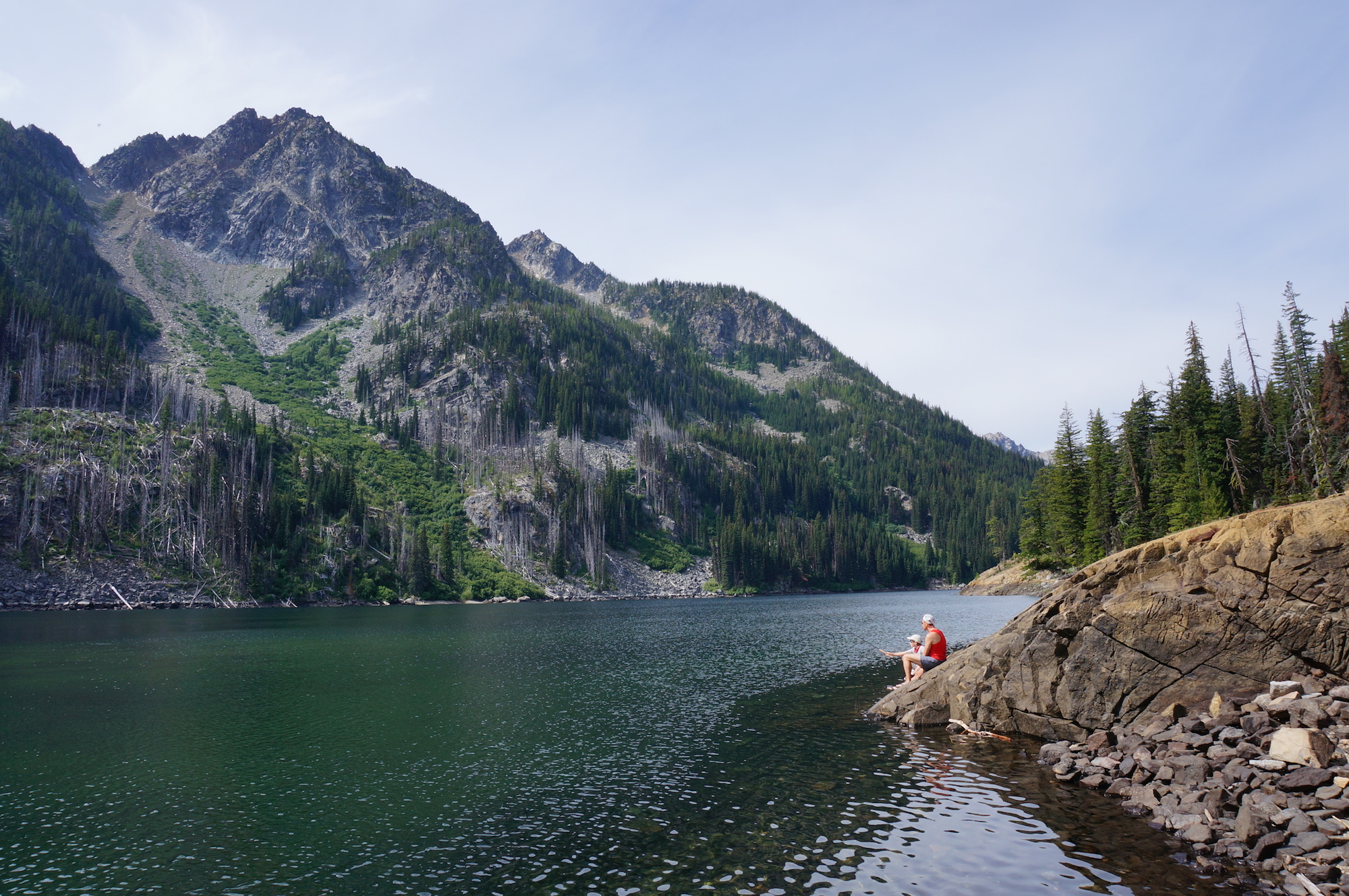
Photo credit: Nete Olsen
By Margie Van Cleve, Conservation Chair for the Washington State Chapter
The Enchantments, housed in the Alpine Lakes Wilderness, is an extremely popular hiking destination that can be incredibly hard to score a camping permit. There were 24,614 applications in 2019, with the Forest Service awarding 2,060 permits, and these numbers don’t include the 30,358 day hikers. Because of this heavy use, the Enchantments permit area was designated a “Leave No Trace” hotspot in 2018. However, despite these efforts to protect this special place, a recent suite of proposals from land managers may permit heavy machinery to drive up the trail to the lakes in order to rebuild dams and extract water.
In order to protect the Alpine Lakes Wilderness, please submit a comment by February 1, 2021.
Following the comment period, two virtual public hearings have been scheduled: Wednesday, January 13 from 3-6 pm; and Thursday, January 21 from 5-8 pm. If you would like to speak at either hearing, you must register:
Background:
The Icicle Peshastin Irrigation District (IPID) owns and operates a ninety-year-old dam on Eightmile Lake in the Alpine Lakes Wilderness. In 2017, the Jack Creek fire burned the forest around Eightmile Lake, which increased the debris and runoff into the lake, which, in turn, made the area more susceptible to erosion, flash flooding and possible dam failure. The Department of Ecology’s Office of Dam Safety estimated that 50 homes would be impacted by a dam failure.
WA Department of Ecology’s Office of Dam Safety is requiring IPID to repair Eightmile Lake dam to current dam safety requirements or to remove the dam. The WA Department of Ecology’s Office of Columbia River will be performing the SEPA EIS, as required by the dam safety permit
The Sierra Club believes that the dam at Eightmile Lake must be made safe. However, any reconstruction must be done in such a way that does not undermine the Wilderness Act. It must not be an excuse for extracting more water from the Wilderness, unless supported by a “tentative determination of water rights,” and then, any additional water must be kept instream, for fish.
The reconstruction must be done in compliance with the Wilderness Act. That means no mechanized travel within the Alpine Lakes Wilderness. No road construction (or trundling down a trail) for dump trucks, concrete trucks, or earthmovers. Typically, the Okanogan-Wenatchee National Forest serves as the permitting agency for work in and around the Alpine Lakes Wilderness but, the National Forest Service is abdicating their responsibility. In May 2018, the National Forest Service required IPID to helicopter an excavator into Eightmile Lake dam for emergency dam repairs. Now there is silence concerning a proposal to allow “overland vehicle transport” to the same dam site.
The Sierra Club also believes that just because water rights were granted to IPID in 1929 doesn’t mean they still have those rights in 2020. IPID was originally granted a 2,500 acre-foot annual storage water right before the construction of their dam was complete. After construction, it was discovered that there was seepage (leakage) at the concrete dam so IPID never withdrew more than 1,700 acre-feet of water from Eightmile Lake. Generally, Washington water law indicates that a water right guaranteed on paper, but never fulfilled in practice - is relinquished. As the saying goes, ‘if you don’t use it, you lose it’.
Now, the Office of Columbia River (OCR) is planning to pay for the reconstruction of the dam at Eightmile Lake for IPID and allow withdrawal of 2,000 acre-feet of water annually. IPID has said any water over 1,400-acre feet of water (except in a drought year) will go to OCR. OCR has not made any statements as to where that additional water will go. The Sierra Club does not support any additional withdrawals of water from Eightmile Lake that is not kept instream for fish.
The Icicle Workgroup will next begin the process of mining additional water from the lakes behind the dams in Colchuck, Lower Klonaqua and Square Lakes, which are much further into the Alpine Lakes Wilderness. The Office of Dam Safety has stated that their preliminary condition assessment on dam condition at Colchuck, Lower Klonaqua and Square Lakes is “poor” and that these dams should be reclassified to “high-hazard dams.” This could mean more dam reconstruction deep in the heart of the Alpine Lakes Wilderness.
The Sierra Club believes there are ways to provide additional water for the fish and irrigators, using technologies and efficiencies which were not available in 1929 but are available now. These could leave the lakes in the Wilderness without the scars of dam reconstruction.
Repairing the high-hazard dam at Eightmile Lake is one thing. Mining more water than ever before in the upper lakes of the Alpine Lakes Wilderness is another. Water is life. It is critical that we all work together to meet our obligation for more instream flow for fish, while ensuring farmers and communities are able to continue their usage - while not trampling our last wild places in the process.
Submit your comments today and include these Key Messages:
• Respect the Wilderness Act. No mechanized travel within the Alpine Lakes Wilderness. All machinery needed to reconstruct the dam must be flown in via helicopter or carried in via pack animals.
• Ask for a “Tentative Determination of the Eightmile Lake Storage Right.” This means that the Department of Ecology must formally determine if IPID has not used any of their storage water right for a period of five years or more.
• No dam reconstruction at Lower Klonaqua, Square or Colchuck Lakes. A solution must be found that works for fish, farmers and the Wilderness. The work at Eightmile Lake Dam is 3.3 miles from the trailhead. The next sites are deep in the heart of the Alpine Lakes Wilderness: Colchuck, Square and Lower Klonaqua.
Submit your comment!